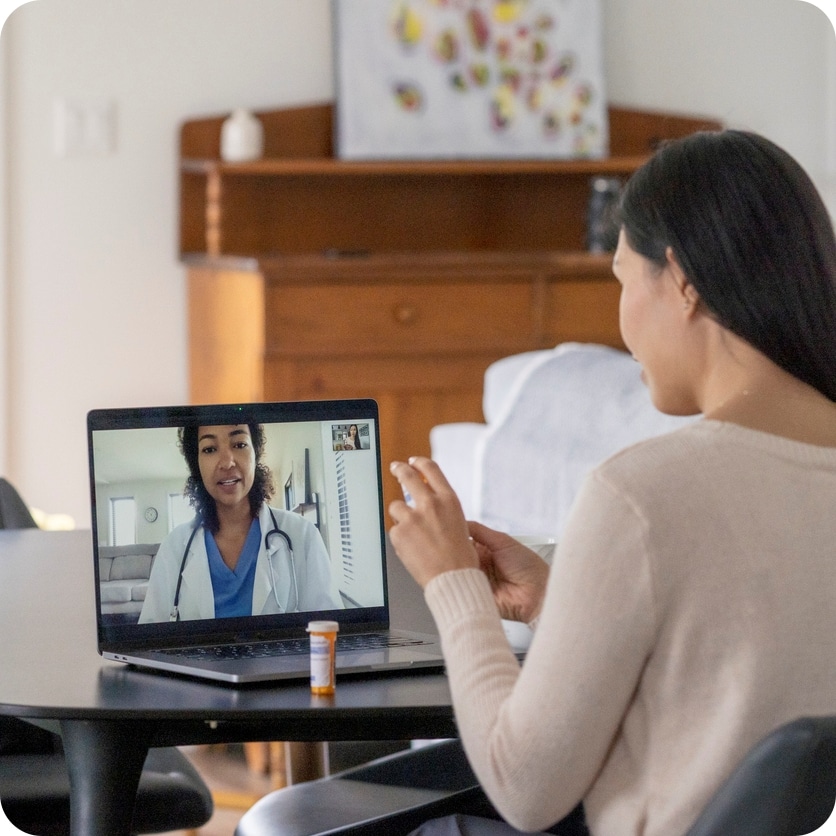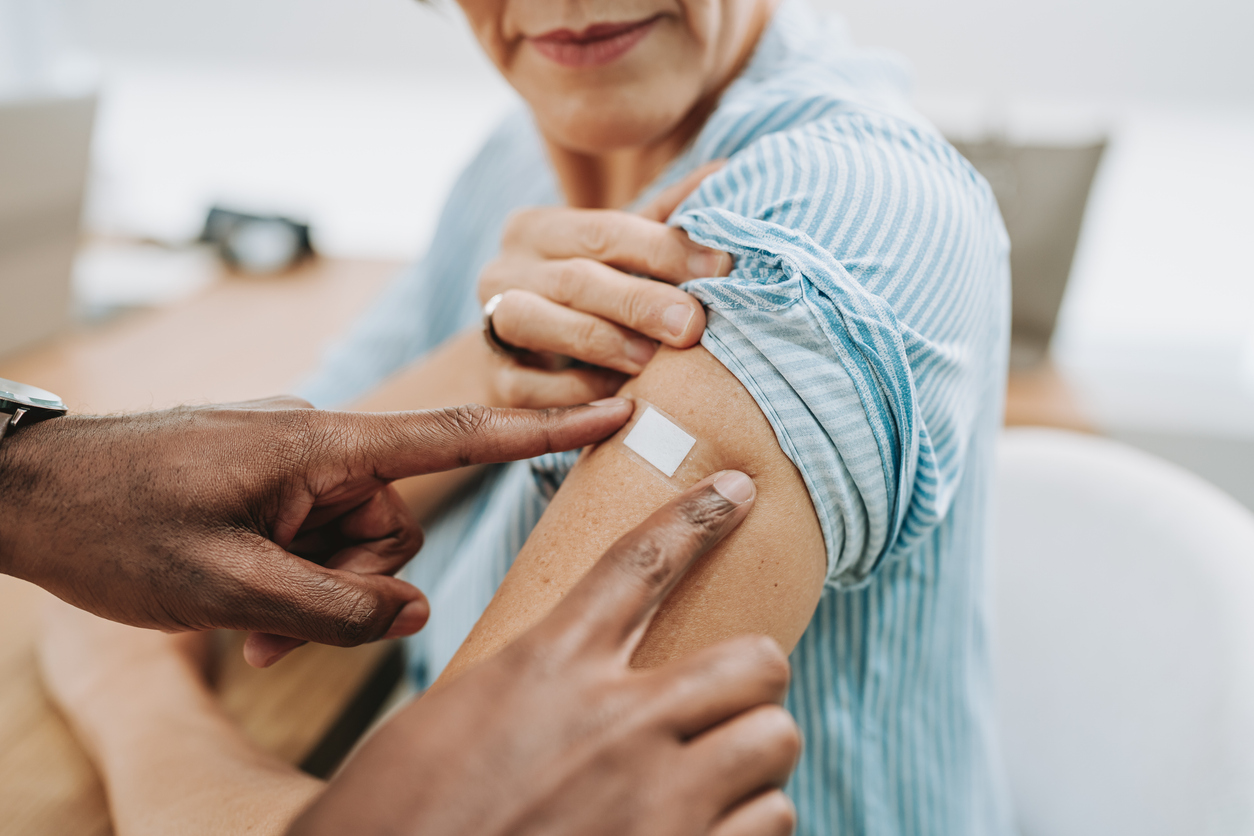The Latest Healthcare News
Check out our blog to learn more from our team about the latest medical advancements, health tips, and primary care news.

Immunizations are as vital for our health as eating well, exercising, and getting enough sleep. Since their introduction, they have prevented millions of deaths annually, leading to the near eradication or significant reduction of diseases such as smallpox, polio, tetanus, measles, and diphtheria. At AllCare, our expert primary care physicians ensure you receive the right vaccines at the right time, whether for routine immunizations, flu shots or COVID shots, travel vaccine, or other needs. We strive to make the process as convenient and stress-free as possible so you can concentrate on staying healthy.
Immunizations are one of the safest ways to protect you and your family from serious illness, offering long-lasting immunity. When you receive a vaccine, it triggers your body’s natural immune response and helps your body fight off the germ if you encounter it again. Vaccine efficacy is crucial for protecting those around you who may not be able to get vaccinated, such as babies, people with weakened immune systems, or those allergic to vaccine ingredients like eggs or gelatin.
At AllCare, our caring team ensures you have access to the vaccines you need, whether you’re at home or traveling. We provide convenient walk-in immediate care services for all your immunization needs. If you have an AllCare primary care physician, you can also discuss any vaccine requirements with them.
At AllCare, we offer different types of vaccines.

Hepatitis B and Hepatitis A are serious liver diseases with different transmission methods. Hepatitis B spreads through contact with infected blood or bodily fluids, potentially leading to liver damage, cancer, or death, and is recommended for everyone from birth to age 60. Hepatitis A, caused by a virus found in the stool of infected individuals, is spread through contaminated food, water, or close contact. Both children and adults should receive childhood vaccines and immunizations for these diseases to ensure protection.

Pneumococcal vaccines protect against bacterial infections like pneumonia, meningitis, and sepsis, which can cause serious health issues or even death. It’s recommended for anyone who is at high risk of getting seriously ill from these diseases, including children and people over age 65.

A Tdap immunization can protect against tetanus, diphtheria, and pertussis (whooping cough). Diphtheria is spread from person to person, while tetanus enters the bloodstream through a cut or open wound. These diseases can be deadly at any age, but whooping cough is especially dangerous for babies, and anyone who is around them should be immunized.

Chickenpox is an itchy rash caused by the varicella-zoster virus that usually lasts about a week. Additional symptoms include tiredness, loss of appetite, fever, and headache. It can lead to more severe infections, including pneumonia, swelling of the brain or spinal cord lining, and blood, bone, and joint infections. Sometimes, people who have had chickenpox will get shingles, a painful rash, later in life.

Influenza is a contagious respiratory condition. A flu shot prevents not only the flu but also millions of flu-related illnesses and complications like pneumonia, bronchitis, and sinus and ear infections. The flu is most dangerous for Infants and young children, people 65 years and older, pregnant people, and people with certain health conditions or a weakened immune system. The CDC recommends vaccinating everyone six months or older for the flu every year.

This highly effective vaccine offers long-term protection—usually for life—against measles, mumps, and rubella. These three diseases are easily spread through contact with infected people and can cause serious health concerns, including meningitis, blindness, and hearing loss. This immunization is recommended for children at one year old and anyone older who has not previously been vaccinated.

The Human papillomavirus (HPV) is the most common sexually transmitted infection (STI) in the U.S. It’s spread through sexual contact with someone who is infected with the virus and affects many young people in their late teens or early 20s. HPV immunization can protect against the HPV viruses that cause genital warts and certain types of cancers.

The COVID-19 vaccine protects you and those around you from severe complications like hospitalization and death. It is recommended for everyone six months and older, especially high-risk groups such as those over 65, individuals with chronic conditions, immunocompromised persons, residents of long-term care facilities, and pregnant or breastfeeding women.

Experience the convenience of telehealth appointments at AllCare. Our telemedicine services are designed to provide you with seamless access to healthcare without the need to leave your home. Whether you need an online doctor’s appointment for immediate or primary care, AllCare’s got you covered. With our online telehealth services currently available to individuals located in Virginia, Maryland, and Washington, D.C., you can connect with our experienced immediate and primary care physicians via secure video calls.
At AllCare, we are expanding our virtual healthcare access to all services previously offered in person. This includes:
Nearly everyone can benefit from receiving the proper immunizations to protect them from serious illnesses through every stage of life, including:

Keeping up with your vaccinations is easy and convenient with our walk-in preventive care services. Here are the steps to get vaccinated at AllCare:
Yes. Vaccines undergo constant study and rigorous testing, including clinical trials, to ensure their safety before they can ever be approved for use. Your child is far more likely to become seriously ill from a vaccine-preventable disease than from the immunization itself. Vaccine safety is monitored closely, with side effects usually mild and temporary, such as swelling, redness at the vaccination site, or a low-grade fever. If, in the rare event, you experience an allergic reaction to a vaccine, contact 911 or visit your local ER.
Yes. There are still vaccine-preventable diseases in the U.S., including measles and whooping cough (pertussis), which have seen a resurgence in the last few years. Your kids should be immunized to protect them from these and other serious diseases that can cause death or disability. Vaccines can also help protect babies who are too young to be fully immunized and people who can’t be vaccinated for medical reasons. In some states, children need to be up to date on their immunizations before they start school.
In the past few years, especially with COVID-19, you may have heard the term “herd immunity.” While it’s not a new term, herd immunity, also known as community immunity, occurs when a large portion of the population becomes immune to a contagious disease, providing protection for those who can’t be vaccinated. Simply put, when you limit the opportunity for the infection to spread, you limit the number of people who are contagious.
The frequency of vaccinations depends on the specific vaccine and individual health needs:
Always follow your healthcare provider’s recommendations for vaccines and boosters based on your health status and lifestyle.
At AllCare, we’re proud to deliver exceptional primary and immediate care to residents across Virginia, Maryland, and Washington D.C. From bustling city centers to serene suburban neighborhoods, our clinics are strategically placed for your convenience and care. Experience top-tier immunization treatments in your community with AllCare, where your health is our priority.
Check out our blog to learn more from our team about the latest medical advancements, health tips, and primary care news.
Seasonal Affective Disorder (SAD) represents a significant mental health concern affecting approximately 5% of adults in the United States. This […]
Read More >Mammograms save lives. Early detection of breast cancer through proper screening will give a patient a remarkable 99% five-year survival […]
Read More >Most people are aware that diet, exercise, and genetics affect cholesterol levels. But can stress raise your cholesterol? The answer […]
Read More >Our related healthcare services extend beyond immediate care to include preventive care such as routine physical exams, chronic disease management for conditions like diabetes, and specialty care referrals for more complex health issues.